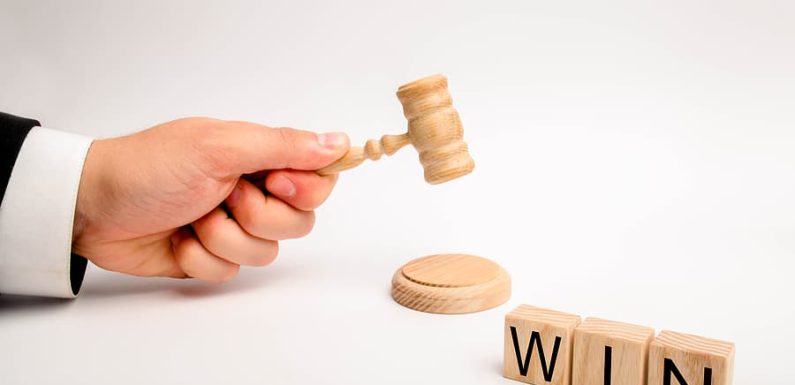
Winning a lawsuit and obtaining a money judgment in your favor can feel like a major victory — and it is. But unfortunately, that court judgment doesn’t automatically result in payment. In fact, collecting the money you’re owed can often be more difficult than winning the case itself.
Whether your judgment stems from unpaid debts, breach of contract, property damage, or another civil matter, understanding the judgment collection process is crucial. This guide will walk you through the next steps after winning a judgment, what you can do to enforce it, and when it’s time to involve a judgment collection attorney.
Step 1: Understand What the Judgment Means
A judgment is a court order that legally requires the losing party (the “judgment debtor”) to pay a specified amount to the winning party (the “judgment creditor”). It may include:
- The original amount owed
- Interest
- Court costs
- Attorney’s fees (if awarded)
While a judgment gives you legal rights to collect, it does not guarantee payment. Most courts do not enforce judgments on your behalf — that’s your responsibility.
Step 2: Wait for the Appeal Period to End (If Applicable)
In most states, the debtor has a limited time to appeal the judgment, typically ranging from 10 to 30 days. If they file an appeal, the judgment might be stayed (put on hold) until a higher court reviews the case.
If there’s no appeal, or the appeal is unsuccessful, the judgment becomes final and enforceable.
Step 3: Request a Certified Copy of the Judgment
You’ll need a certified copy of the judgment to begin enforcement efforts. This document proves that the court has ruled in your favor and is necessary for further legal action like wage garnishments, liens, or bank levies.
Step 4: Determine If the Debtor Is Willing to Pay
Some judgment debtors pay voluntarily once the court enters a judgment against them. Others may try to negotiate a payment plan or settlement. If the debtor is communicative and cooperative, it’s often best to try to work out payment terms before pursuing forced collection.
However, many debtors will ignore the judgment, disappear, or claim they can’t pay. In those cases, you’ll need to take additional steps.
Step 5: Investigate the Debtor’s Assets
To collect a judgment, you need to know where the debtor’s assets are. That may include:
- Bank accounts
- Wages or salary
- Real estate
- Vehicles
- Business interests
You can request a post-judgment examination in which the debtor must disclose their income and assets under oath. Your attorney may also use tools like:
- Subpoenas
- Asset searches
- Public records
- Skip tracing (to locate a missing debtor)
This is a critical step, especially if the debtor is actively hiding assets or moving them around.
Step 6: Enforce the Judgment
Once you’ve identified assets, you can begin enforcement. Common methods include:
1. Wage Garnishment
You may be able to garnish a portion of the debtor’s wages directly from their employer. There are limits based on income and state law, but this is often an effective long-term strategy.
2. Bank Levy
If you know where the debtor banks, you can ask the court to issue a levy, freezing and seizing funds in the account to satisfy your judgment.
3. Property Liens
You can file a judgment lien against real estate or personal property owned by the debtor. This lien may not result in immediate payment, but it can prevent the debtor from selling or refinancing the property without paying you first.
4. Seizure of Assets
In rare cases, the court may allow the sheriff to seize and sell valuable personal property (vehicles, equipment, etc.) to satisfy the judgment.
Step 7: Monitor and Renew the Judgment (If Necessary)
Judgments don’t last forever. In many states, they expire after 10 to 20 years, but can be renewed before expiration. If your judgment remains unpaid, it’s important to track deadlines and renew as needed to keep it enforceable.
Additionally, interest may accrue on the unpaid amount — which means the debt can grow significantly over time.
When to Hire a Judgment Collection Attorney
While it’s possible to attempt collection on your own, doing so can be time-consuming, frustrating, and legally complex. A judgment collection attorney can help by:
- Conducting asset searches
- Handling all court filings and legal procedures
- Using aggressive but legal tactics to locate and collect from debtors
- Enforcing out-of-state judgments
- Navigating bankruptcy issues or corporate protections
Experienced attorneys understand debtor behavior and know how to overcome common collection obstacles. In many cases, they can collect when others cannot.
Final Thoughts
Winning a judgment is only half the battle. If the debtor refuses to pay, you’ll need to take further action to enforce your legal rights. From asset investigations to garnishments and liens, there are tools available — but they require knowledge, persistence, and legal precision.
Don’t let your judgment go unpaid. If you’re struggling to collect, working with a judgment collection attorney can make all the difference. We recommend Judgement Collection Attorney.


